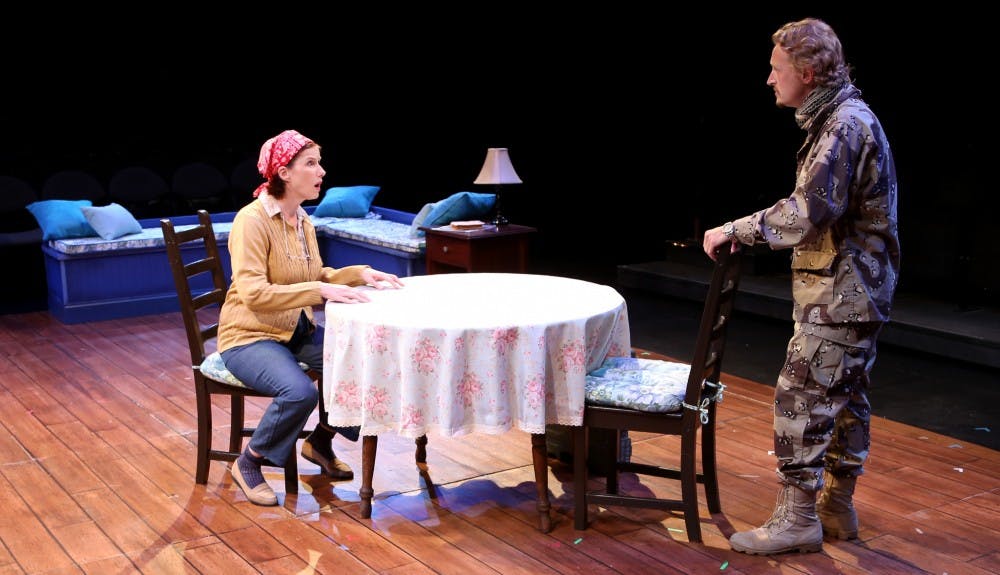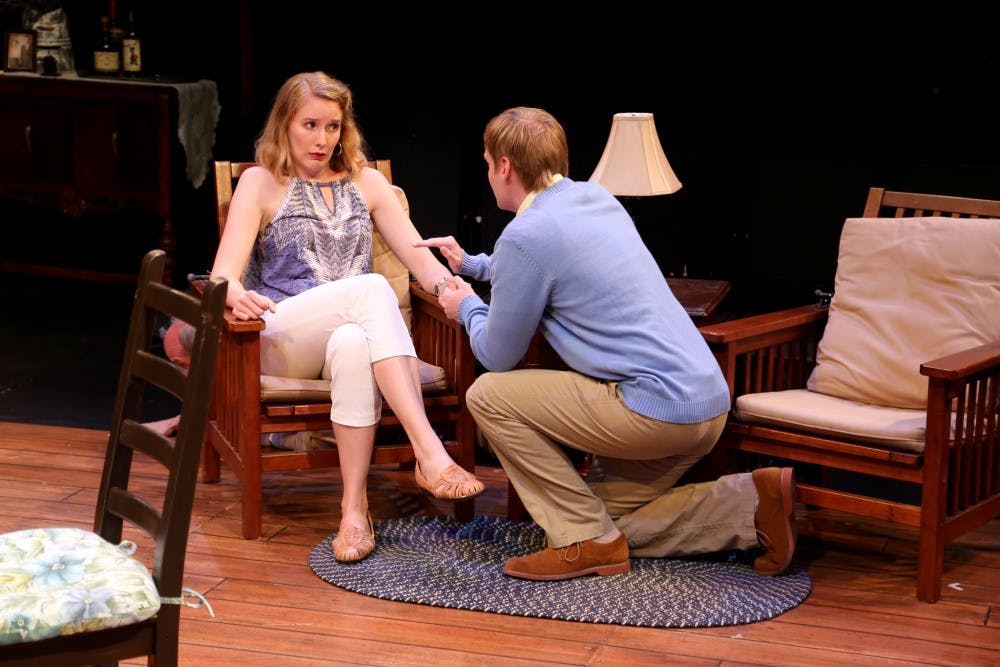IU's Summer Theatre cast will present the classic two-act comedy “The Foreigner” this month. The play, which has become a staple of professional and amateur theater alike, will run through July 29 at the Wells-Metz Theatre.
“It’s very funny,” Director Jonathan Michaelsen said. “It’s farcical. It’s got interesting characters. It’s just a lot of fun.”
The play follows two Englishmen who arrive at a rural town in Georgia. Charlie, one of the Englishmen, is nervous about interacting with the townspeople, so his friend, Froggy, introduces Charlie as a “foreigner” who does not speak English.
Thinking Charlie cannot understand them, the townspeople share their secrets, and awkward, absurd conversations ensue.

Michaelsen, who is also the director of graduate studies for the theater department, said he rediscovered “The Foreigner” when perusing plays for the summer and chose it because it was particularly poignant in today’s political climate.
“When I read it again, I went ‘wow’ because there’s some things in there that could be from today’s headlines,” Michaelsen said.
The play includes white supremacists and characters wanting to cleanse their town of “foreigners” like Charlie.
“When the play debuted in the (19)80s that was very poignant too, but I think it also matches the tenor of our current political debate,” Michaelsen said. “Albeit funny, the play has darker elements that express what we’re seeing in current discourse.”
Since choosing the play, Michaelsen said the play has become more timely as perceptions of immigrants in the U.S. have worsened, culminating in the Trump administration’s now abandoned zero-tolerance immigration policy that separated parents from children while crossing the U.S.-Mexico border.
As a “foreigner,” Charlie has a positive influence on the “good” characters of the play, making them more human and allowing them to reach their full potentials, Michaelsen said. While the people around him transform, Charlie also blossoms as he becomes used to being the center of attention, becomes part of the community and finds happiness.
At the same time, the darker characters grow even darker around Charlie as they treat him as an outsider.
“So he has the opposite impact on these groups,” Michaelsen said. “He enables certain characters and brings out real hatred in others.”
Michaelsen said this effect may reflect how people today respond to interacting with immigrants and refugees.
Both the good and evil characters make assumptions about Charlie after identifying him as an outsider, Michaelsen said. Likewise, he said people in real life also jump to conclusions about foreigners who enter their countries, either assuming they are poor refugees in need of help or lawbreakers who should be kicked out.
“In the play, they don’t even know what country he’s from, but they know he doesn’t speak English, so they immediately jump to conclusions,” he said. “And we’re off to the races. There’s really no thought that goes into who this person might be beyond that label of ‘foreign.’”
Michaelsen said it is also important to note Charlie is not considered a foreigner because he is from England, but because he does not speak English — a distinction he said is reflected in how people in general view those who cannot speak English.
All three summer productions, including the plays “Our Town” and “The 25th Annual Putnam County Spelling Bee,” center on the idea of building community.
Michaelsen said “The Foreigner” fits into the theme well because of how some characters try to ostracize Charlie from the community and how others make him a part of their community.
One challenge of the play is to balance the zany comedy with the serious undercurrent, Michaelsen said.
“It’s tricky,” he said. “Comedy is really hard. The timing, the inflections, the way the language is used is not easy. And then you pile on that serious, darker side, and it’s gets even harder."
As a director, Michaelsen works to strike this balance by working with the actors on timing, inflections and physicality while still encouraging them to build real, truthful characters. But he also does not want to sugarcoat the darker themes with humor.
“I’m not really pulling punches on the darker stuff,” he said. “The audience needs to know what they’re coming to. There’s some dark stuff, and we’re not just going to hide it in humor.”




